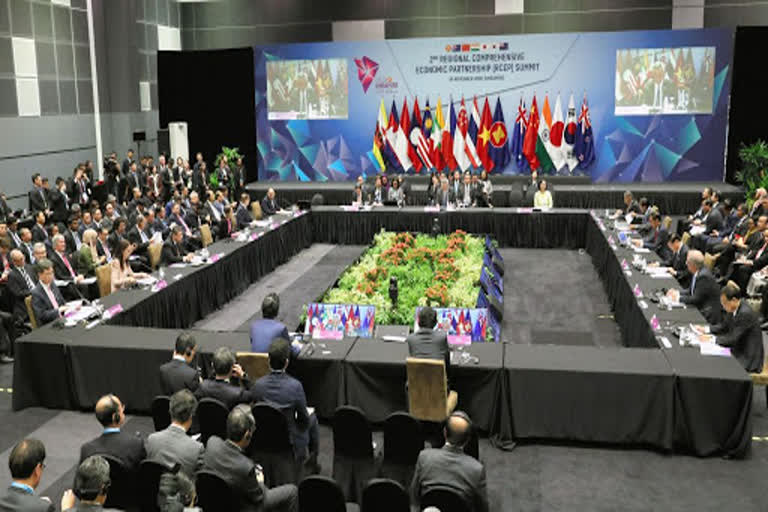New Delhi: Commerce ministers of 16 countries including India and Japan, which are negotiating mega free trade agreement RCEP, will hold a crucial meeting in Bangkok on September 8 to iron out differences and push the negotiations forward, an official has said.
The negotiations for the Regional Comprehensive Economic Partnership (RCEP) has reached a fundamental phase as the member countries are targeting to conclude the talks, according to the official.
"This will be most likely the last meeting at ministers level," the official said.
This meet assumes significance as several sectors have raised serious concerns over the impact of the agreement on the domestic industry.
So far 27 rounds of talks have been held, but the member countries are yet to arrive at the number of goods over which import duties will be eliminated or significantly reduced.
Similarly, talks on liberalising rules for trade of services, a key area of interest for India, too are moving slowly.
Indian industry has raised concerns over the presence of China in the grouping with which India has a trade deficit of over USD 50 billion. Various sectors, including dairy, metals, electronics, chemicals, and textiles, have urged the government to not agree on duty cut in these segments.
Read More: ED searches Jet Airways founder Naresh Goyal's premises in Delhi, Mumbai
Amul, which contributes about 4 per cent to India's total dairy production, has sought exclusion of all dairy and dairy products from any liberalisation.
Australia and New Zealand are among the largest players in the dairy sector.
RCEP bloc includes the 10 ASEAN members (Brunei, Cambodia, Indonesia, Laos, Malaysia, Myanmar, the Philippines, Singapore, Thailand, and Vietnam) and Australia, China, India, Japan, Korea, and New Zealand.
India has registered trade deficit in 2018-19 with as many as 11 RCEP member countries, including China, South Korea, and Australia.
The trade agreement aims to cover issues related to goods, services, investments, economic and technical cooperation, competition and intellectual property rights.
In the merchandise sector, all the members want India to eliminate customs duties on a maximum number of goods as the country's huge domestic market provides an immense opportunity for exports.
India trades in over 11,500 products. Certain sensitive sectors like agriculture are mostly kept out of the purview of such agreements to protect the interest of farmers. Trade experts have mixed views over the agreement.
While some say that India should get into the agreement only after strengthening domestic manufacturing and bridging the huge trade deficit, others argue that RCEP pact should not be looked into from the prism of the trade deficit as it helps in attracting foreign investments and modern technologies.



